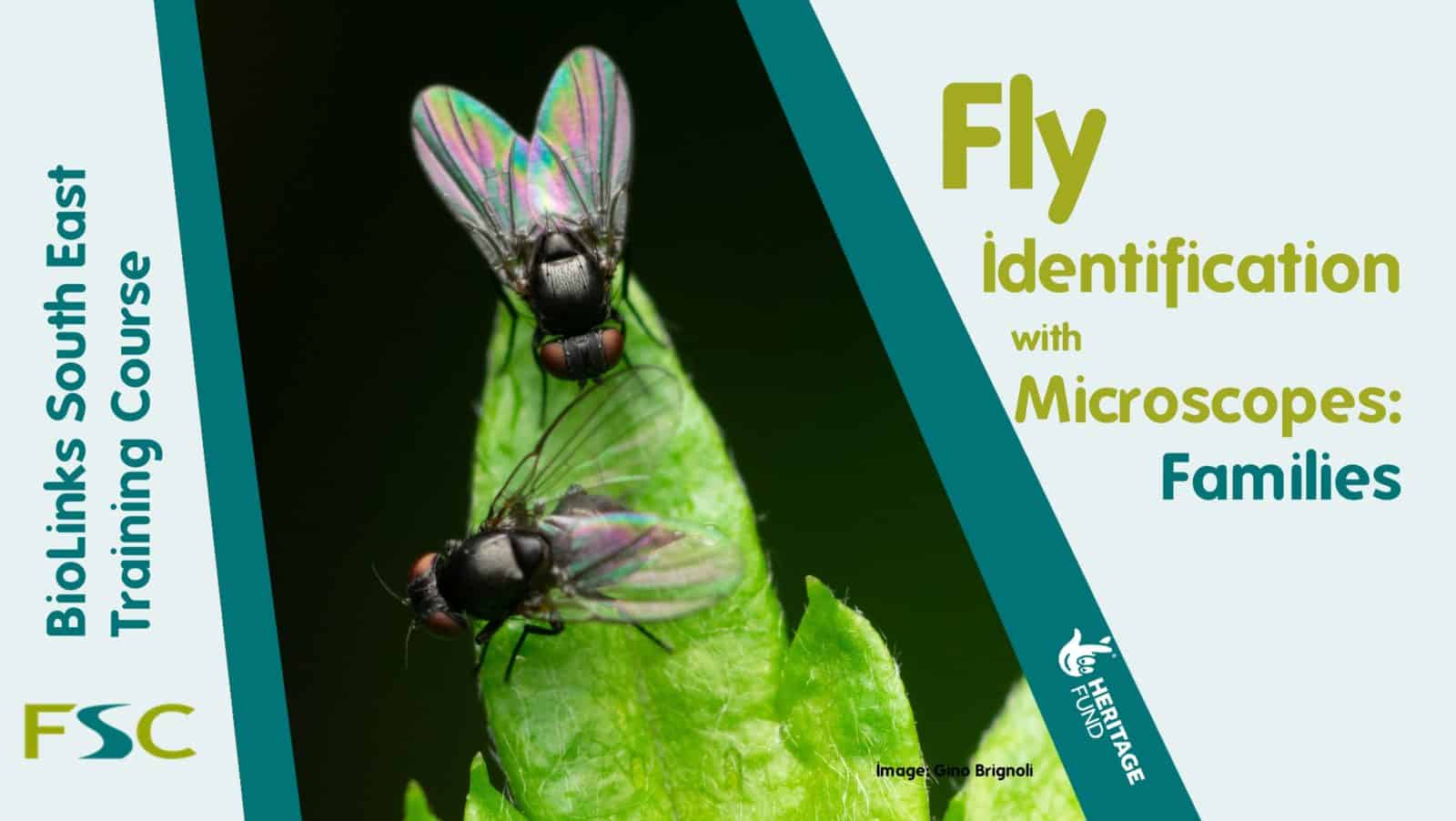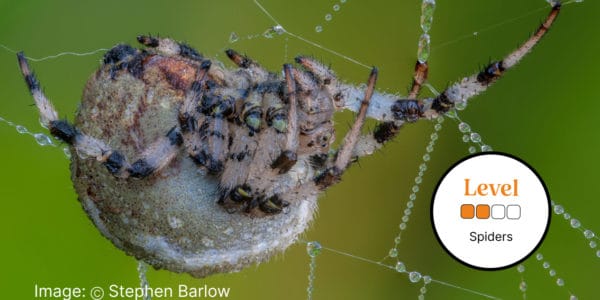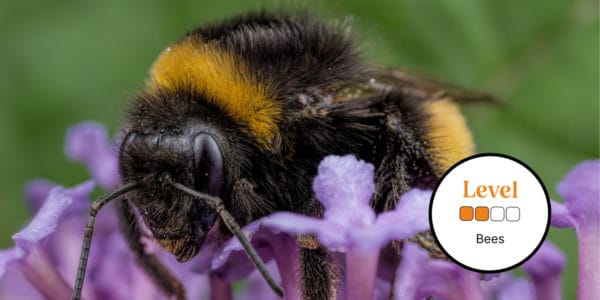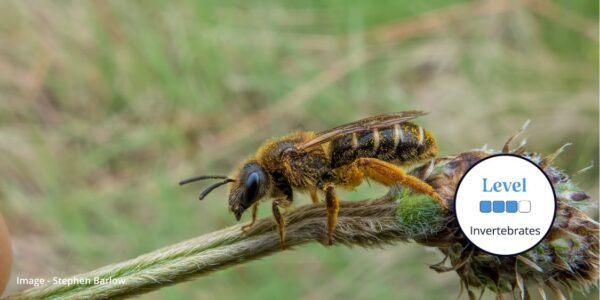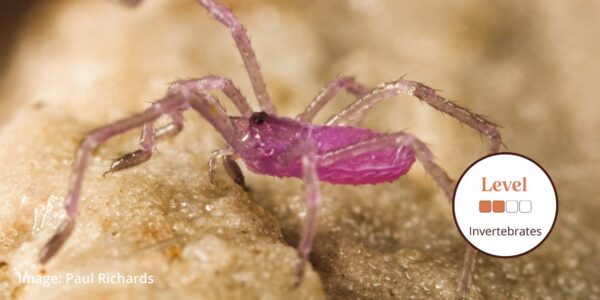There are about 7,000 species of fly in Britain, from over 90 different families of flies. Familiar families of flies include hoverflies, soldierflies, robberflies, bee-flies, horseflies, mosquitoes, house flies, and fruit flies. Join us to take a deep dive into the world of flies with this 2-day course.
The day includes a short presentation introducing the morphological features used to identify specimens to family, followed by practical sessions guided by our expert tutor. During the lab sessions, you’ll explore a wide variety of different fly specimens, including some that are easy to recognise, and some that require more detailed examination.
Through a combination of taught classroom content and lab-based practical sessions, learners will gain confidence in using the identification keys and preserved specimens to identify flies to family level.
- Certificate upon course completion.
- Please email [email protected] if you have any questions.
- Please note that this course will involve using specimens that have been killed and preserved.
This course is aimed at adults only and course attendees must be at least 18 years old in order to attend.
What will be covered during this course?
- The external (morphological) features used in fly identification
- How to work through keys to determine fly specimens accurately to family level
- Practical experience observing fly ID features using a microscope
- No microscope experience is necessary – our tutors will set up and show you how to use a microscope
See the ‘Example Timetable’, ‘What’s Included’ and ‘Before You Attend’ sections below for more information about this course.
Course Fees
Regular Price: £150 For professionals and residents outside of the UK. Select ‘Attendee: In Person’ Sold Out
Subsidised Price: £20 Subsidised by the FSC BioLinks project for non-professionals eg. volunteers, biological recorders, wildlife gardeners, amateur naturalists and students. Available to UK residents only. Select ‘Attendee Subsidised: In Person’
Tutor: Martin Harvey
Martin Harvey is an entomologist and biological recorder. He is based at the UKCEH Biological Records Centre, working on projects such as PoMS and iRecord. Martin is also a tutor for the Field Studies Council and teaches various courses that focus on invertebrates and biological recording, including the Identifying Insects Using Specimens and Microscopes course delivered as part of the MSc Biological Recording & Ecological Monitoring with Manchester Metropolitan University. In his spare time, Martin has been County Moth Recorder for Berkshire for over 20 years and runs the national recording scheme for soldierflies and allies, which includes robberflies, horseflies, bee-flies and snipeflies among others. .Covid Measures
In order to keep our customers and staff safe, we ask that anyone attending our centres:
- Wears a face covering when in shared indoor space (unless exempt).
- Maintains social distancing.
- Cleans their hands regularly.
- Takes a Covid-19 test before they arrive.
Book with Confidence
We understand the difficulties of making plans in the current situation when guidelines continue to change, and insurance conditions are being tightened. In response, we will continue to offer additional flexibility. Find out more here
Example Timetable
- Please arrive in time for the course to start promptly at 10:00 am.
- Refreshments will be available from 9.45 am.
- The course will end at 4:00 pm.
What's Included
- 12 hours of tuition per day.
- Certificate of attendance.
- Access to a microscope, identification resources and specimens.
Bursaries and Subsidies
FSC BioLinks
FSC BioLinks is an exciting project for FSC in the South East and West Midlands, bringing together existing volunteers with skills in biological recording and identification, and new volunteers.
This project provides subsidised training courses, learning opportunities and digital tools focussed on invertebrate identification for anyone involved or interested in biological recording, to build and strengthen the community.
Invertebrates provide us with many useful ecosystem services, like pollination and decomposition, which we cannot survive without but their numbers are declining. Few people know how to identify or record invertebrates meaning there is a lack of data.
We are delighted to have been awarded a grant of £1.23 million from the National Lottery Heritage Fund for this project.
Before You Attend
Getting to FSC London: Bushy Park
Information on getting to the site can be found here.
When you arrive at The Stockyard gate you may need to call the centre to open the gate. You can reach the staff on site on 020 8941 4398.
Due to the outside nature of part of this course, participants are advised to bring suitable clothing and footwear in order to access the Bushy Park site in various weather conditions.
What to bring
- Notebook and pencil
- Lunch
- Any fly specimens you wish to have verified by the course tutor (time dependent)
Please note that this course will involve using specimens that have been killed and preserved.
There will be a member of staff with first aid training and access to a first aid kit on site. If you have special medical requirements please let us know as soon as possible so we can plan the course.
Sorry this course has ended

